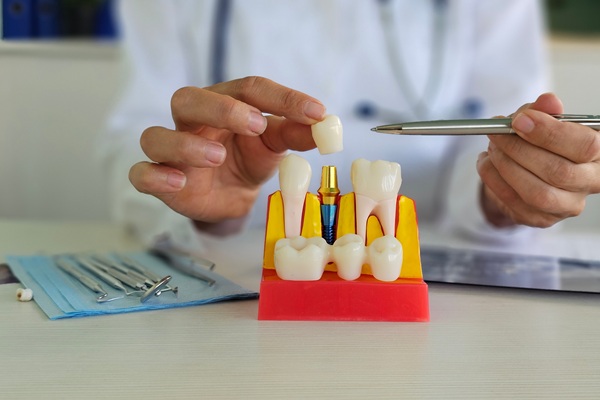Root Canal Treatment: A Dental Restoration to Treat an Infected Tooth

Dental restorations refers to a procedure that is done in order to restore a tooth that is in bad shape due to decay, abnormalities, or imperfections. There are a number of different dental restorations that dentists can administer to patients of all ages.
One of the most commonly performed dental restoration procedures is a root canal, which often sparks fear in people when they hear the term. However, patients can rest assured knowing that root canals have become a lot more modernized. Current dental technology allows for a seamless, relatively painless procedure that effectively restores the health of the tooth.
Dental restoration and root canals
Below is a quick overview of root canal procedures, which are common dental restorations needed to address a damaged tooth. Keep reading to learn more.
What is a root canal?
A root canal is a dental restoration procedure that clears out an unhealthy tooth and then recaps it to ensure the health and structural integrity of the tooth is restored. Root canals are needed on teeth that have infected pulp, which is the interior portion of the tooth where the nerves are housed. When the pulp becomes infected, patients are likely to need a serious dental restoration, in order to restore health, avoid pain, and save the nerves of the tooth.
Understanding the root canal process
A root canal procedure used to be considered invasive, however, as times have changed, it is now very simple. The dentist starts by numbing the patient to ensures that they are comfortable. Then, the dentist removes the infected portions of the pulp by using a dental drill to access the area. After all infected parts have been removed, a quick but thorough cleaning takes place. The interior of the tooth has to be cleaned to ensure that there is nothing left behind that may cause problems in the future. A dental material called gutta-percha is used to fill the cavity of the tooth. Gutta-percha is rubber-like and works to seal the tooth off to protect it from future damage.
After the tooth has been sealed, the next part of the dental restoration takes place. As it relates to a root canal, the permanent dental restorations are typically dental crowns. General dentists highly recommend the placement of a dental crown as a way to protect the tooth.
A temporary dental crown will be placed over the tooth to protect it until a permanent crown is created. A week or so later, the patient can return for the final placement of the permanent dental crown, which is either made of gold or ceramic materials, both of which are durable.
Do you need a root canal?
Individuals who need a root canal or other dental restoration can consult with our general dentist to learn more. Additionally, an evaluation can be done in order to determine the most suitable dental restoration. Reach out today to ask questions or to schedule a consultation appointment.
Request an appointment here: https://princewilliamdental.com or call Prince William Dental at (703) 662-8287 for an appointment in our Gainesville office.
Check out what others are saying about our dental services on Yelp: Dental Restorations in Gainesville, VA.
Recent Posts
A damaged tooth can be uncomfortable and make eating difficult, but quick treatment can restore function and appearance. An emergency dentist is a general dentist who offers fast, effective care to address urgent dental concerns. Their goal is to protect the tooth and prevent further complications. Whether caused by an accident, infection, or another unexpected…
Dental implants are a permanent, functional solution for patients with tooth loss in one or both dental arches. Both partial and full arch dental implants have become more accessible, customizable, and successful for a wide range of patients. However, they have different uses and candidacy requirements. Understanding the differences between these options helps clarify which…
An emergency dentist is essential for treating dental injuries, including a knocked-out tooth. Whether resulting from a sports injury, accident, or fall, a lost tooth requires immediate attention to improve the chances of successful re-implantation. Timely care from a skilled emergency dental professional further increases the likelihood of preserving the tooth and reducing the risk…
When a toothache persists or becomes severe, an emergency dentist can provide immediate relief. Whether it is due to an infection, a cavity, or an injury, prompt dental care also helps to prevent further complications. Understanding what to expect when seeing a dentist about a toothache can help ease concerns.Tooth pain can result from minor…


